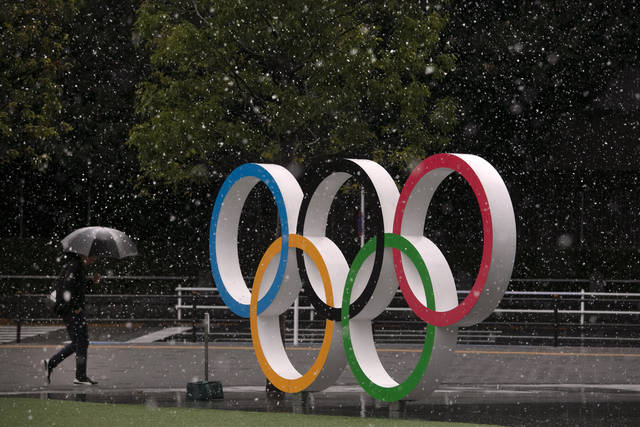
The IOC on Tuesday spelled out contingency plans to adapt qualifying procedures for about 4,700 spots still up for grabs for the Tokyo Games, in a nod to the realities of a sports calendar being shuffled by uncertainty with the coronavirus spreading across the globe.
The IOC said it was still committed to holding the Olympics as scheduled, beginning July 24. But at the end of the first of a series of meetings being held this week with athletes and Olympic committees, the IOC conceded the lead-up to Tokyo was anything but business as usual.
“Currently … the athletes face significant challenges around securing the final qualification places for the Games,” the IOC said in a statement. “In some countries, athletes are even finding it hard to continue their regular training schedules.”
The Olympic body said that “with more than four months to go before the games, there is no need for any drastic decisions at this stage; and any speculation at this moment would be counterproductive.”
It said it is following the guidance of world health experts, and that because of insurance policies the IOC’s decision will “not be determined by financial interests.”
To date, 57% of athletes are already qualified for the games but the IOC will work with individual sports “to make any necessary and practical adaptations to their respective qualifications.”
Among the 43% of spots not already decided — about 4,700 — include entries from the three headliner sports: swimming, track and field and gymnastics. In the U.S. and many other countries, those spots are determined at Olympic trials in June, which are in limbo.
On Tuesday, track’s pre-Olympic schedule was severely curtailed when the Diamond League announced it was postponing three events in April and May.
Gymnastics has also scrapped or postponed key events. The schedule changes, to say nothing of the reduced training opportunities in quarantined areas, are leading to questions about whether the athletes can be in competition shape come trials and the Olympics themselves.
“As long as the Games are supposed to continue as planned, I don’t think athletes want to scale back their training,” said Han Xiao, the chair of the U.S. Olympic and Paralympic athletes’ group. “I’d like the IOC to give a little more insight into planning and when they might expect to make a final decision, but I don’t know if that’s forthcoming.”
The IOC said it’s still possible to use existing events but also outlined adaptations that could be made if they’re canceled or postponed.
The mission, it said, would be to make sure spots are earned based on on-field results from previous events if the trials — for instance based on international rankings or historical results.
The IOC did not rule out increasing quotas for sports and said those increases would be considered on a case-by-case basis.
___
More AP sports: https://apnews.com/apf-sports and https://twitter.com/AP_Sports


